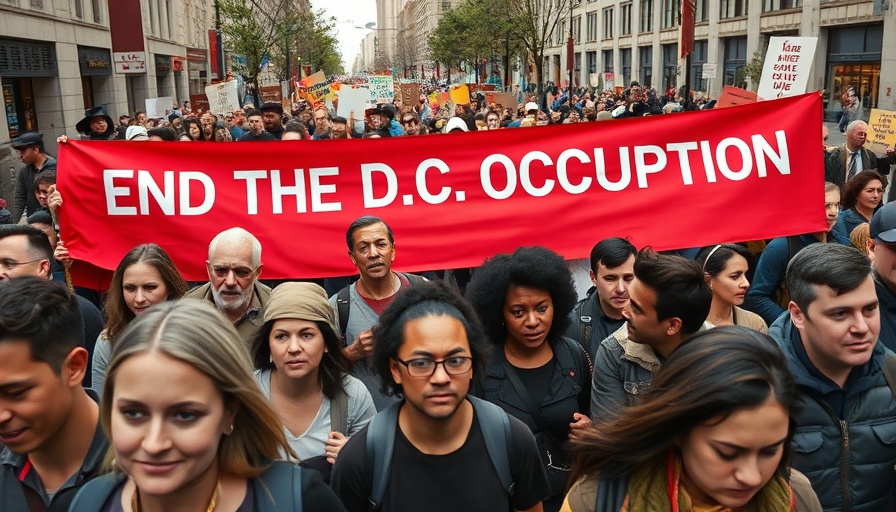
Voices of Dissent: Protests Against Trump's National Guard Deployments
In the heart of Washington D.C., a chorus of protestors filled the streets, echoing their demand for justice and change. The demonstrations against President Trump's decision to deploy the National Guard sparked not just outrage but a sense of unity among diverse groups. With chants of "No justice, no peace" ringing in the air, the protestors stood firm in their beliefs, illustrating a poignant moment in the ongoing dialogue around national security and civil liberties.
In JUST IN: Protestors Demonstrate Against Trump's National Guard Deployments In Washington DC, onlookers are treated to an auditory display of dissent. The video explores the passionate expressions of protestors, prompting a deeper analysis of these critical national discussions.
The Significance of National Guard Deployments
National Guard deployments in urban areas often raise alarm among citizens, leading to fears of militarization of public spaces. Detractors argue that such actions could infringe on civil rights, overshadowing the intended purpose of ensuring safety and order. This dynamic tension prompts civil rights activists to voice their concerns, as seen during the recent protests, where demonstrators highlighted the essence of democratic values. In a nation that prides itself on freedom, the presence of troops can evoke memories of oppression, labeling military intervention as an overreach of governmental power.
Connecting with History: Lessons from the Past
Historically, the National Guard has played pivotal roles in civil unrest, both as protectors and enforcers. Take the 1968 riots following the assassination of Dr. Martin Luther King Jr. as an example, where the deployment of troops was met with resistance and outcry. Today’s events echo past struggles for justice, demonstrating that the fight against systemic injustice continues through generations. The current protests not only draw on historical context but also amplify the urgent calls for reform in policing and broader systemic change.
Exploring the Broader Impact of Protests in America Today
This recent wave of protests speaks not only to individual grievances against the National Guard's presence but also reflects broader societal issues. Issues such as immigration policy, gun control, and racial justice intersect at these gatherings, making them a vital space for discussing America’s future. As protestors hold signs and chant, they are highlighting an essential truth: their voices are integral to shaping national narratives and policies. This grassroots activism raises awareness of critical issues in contemporary America.
Emergency Responses and Homeland Security: The Tightrope Walk
In recent years, the fabric of public trust in governmental institutions has frayed, particularly in the realm of homeland security. While the government aims to protect its citizens, the methods employed often draw skepticism. The protests seen in Washington D.C. are a response to the perceived imbalance of power exercised by authorities, making it essential to scrutinize government actions and ensure accountability in safeguarding civil liberties.
Future Predictions: What Lies Ahead?
Looking ahead, the dynamic between civic activism and governmental response may evolve. Civil rights advocates predict that the current climate will foster even greater demands for transparency and reform. As the nation braces for future elections, the discourse surrounding the National Guard and public safety will likely continue to ignite passionate debates. Awareness around these issues necessitates active engagement from all citizens, emphasizing the need for informed participation in democratic processes.
 Add Element
Add Element  Add Row
Add Row 



Write A Comment